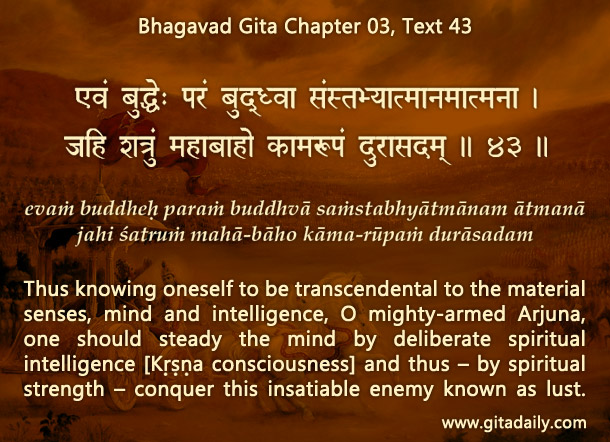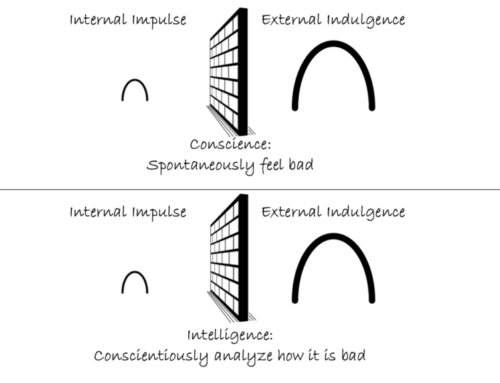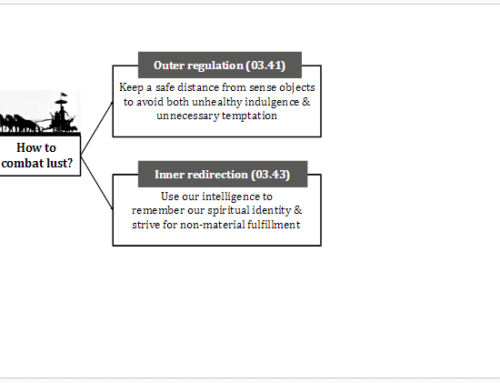Use your intelligence to identify and rectify your conditioning not to justify it
A prominent law-upholder such as a head of state is often protected by a security guard. But suppose such a guard is unwittingly hired by a law-breaker. That guard will end up aiding in the breaking of the law.
Gita wisdom explains that our intelligence is our inner resource, like a security guard. Whereas the law-upholder and the law-breaker are two opposite people, two such opposites reside within us: a noble side and an ignoble side. Our noble side is who we are: souls, parts of the divine. Our ignoble side arises from our inner self-destructive conditioning, with which we mistakenly misidentify. Being thus deluded, we use our intelligence unintelligently or even anti-intelligently. When we do something wrong and are confronted, we may rationalize.
For example, Duryodhana, the Mahabharata’s villain, abused his intelligence thus when he was called to account for his self-destructive envy and arrogance: “This is the way I am – why blame me? Blame the creator who made me this way.”
Why is Duryodhana’s argument an abuse of the intelligence? Because the creator didn’t make us conditioned – our own choices, in previous lives and in our present life, made us conditioned. Such abuse of intelligence entraps us all the more in those conditionings, till we end up degraded and destroyed.
The Bhagavad-gita (03.43) urges us to use our intelligence to situate ourselves in transcendence. Such intelligent use of intelligence involves two steps:
Identification: Whenever a self-destructive desire arises within us, we need to shrewdly identify it – it is not our desire but is an impulse coming from our ignoble side.
Rectification: We wisely connect with a reality higher than ourselves, specifically the highest reality, Krishna, by practicing bhakti-yoga. That connection purifies us and provides us a higher happiness that makes our conditioned impulses resistible and eventually reformable.
Think it over:
- How may we use our intelligence anti-intelligently? Explain with a Mahabharata example.
- How can we use our intelligence intelligently?
- Identify a conditioning that you tend to justify. See if you can catch it when it attacks next time.
To know more about this verse, please click on the image
Explanation of article:
https://www.youtube.com/watch?v=wBh9vMst3OM&feature=youtu.be
Podcast:




Leave A Comment